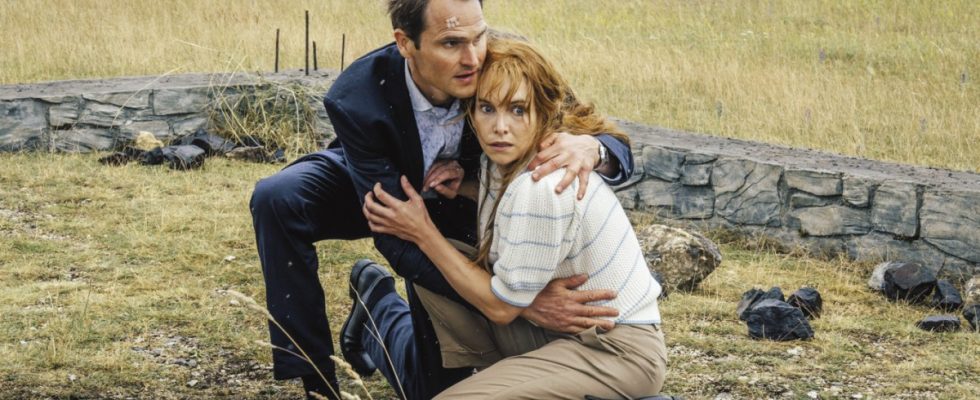Toni’s grave is on the north side of the cemetery. You don’t have to go past it when you go to church. Because the suicides are offside. The grave, the church are in the Upper Palatinate, that is not the mount of Commissioner Voss (Fabian Hinrichs). This is about private things. A college friend from Berlin is a pastor in the dump and surprisingly invites Voss to Sunday mass. It’s supposed to be about Toni and the way she died. She was the third in the gang of friends and Voss’ great love. It’s a shock to him that she’s said to have been dead for two winters. He did not know.
The “High Mass for Toni”, as the thriller is called, no longer occurs: the pastor is stabbed and two valuable crosses are missing. The village policeman scents robbery murder. Surely someone from the youth home, they do something like that. Certainly no one from Toni’s family. They pay corporate taxes, they live in a beautiful villa, they eat their dinner at a long table with candelabra.
Voss remains true to himself: look a lot, talk little, draw conclusions
Voss is not impressed by the patriarchal bugbear, even when Toni’s father calls the Ministry. The hut in which Toni is said to have burned himself is in Franconia – Voss can therefore officially investigate with his colleague Ringelhahn (Dagmar Manzel), who this time is stepping into his shadow. Solo for Voss.
Does that work, another private story by an investigator? It works because Bernd Lange (script) and Michael Krummenacher (director) ensure that there are no private stories that are unfair in a case. The murder investigation is driven forward precisely by the detective’s friendship with the two dead men. Voss remains true to his role: look a lot, talk little, draw conclusions. It looks different in him: flashbacks race through his head, wild times at the lake, in the clubs, and always the face of Toni, to whom he never confessed his love so as not to break the alliance of three. The two speeds form the framework for the thriller, the contrast creates its own tension.
Voss suffers quietly, the patriarch corresponds blusteringly to the cliché. For him, suicides are no longer children, and daughters are no longer heirs to a company. His sons are mean guys, but they cuddle in front of their father. The wife should shut up and knead clay in the conservatory. Anything a little too thick with sauce. On the other hand, Voss seems even more approachable in his quiet melancholy because of the boldness. And ten minutes before the end everything is different anyway. Must see.
The first, Sunday, 8:15 p.m.
You can find more series recommendations here.

